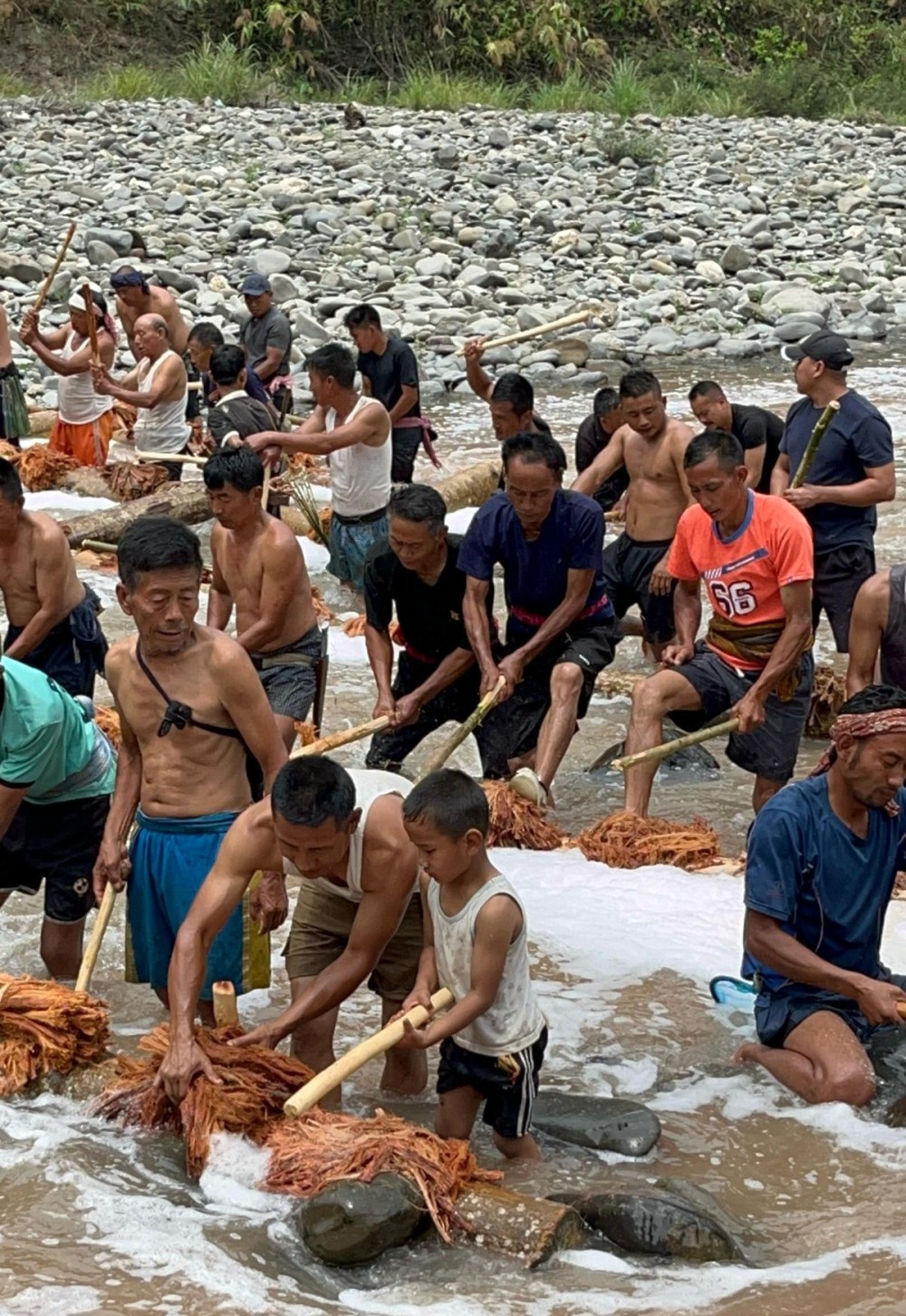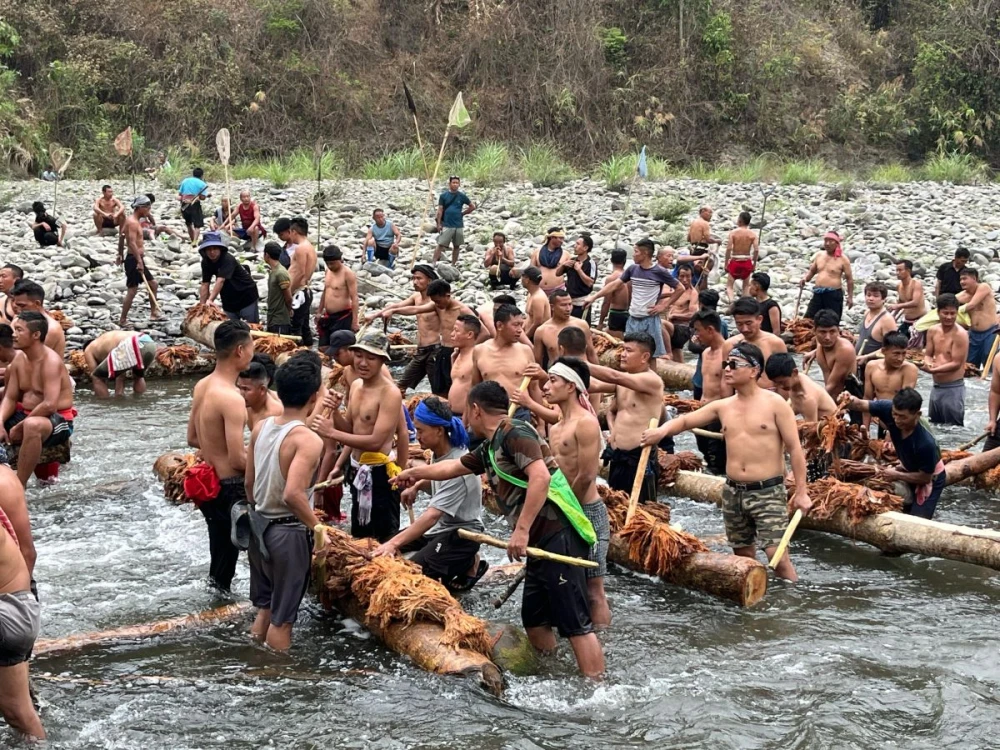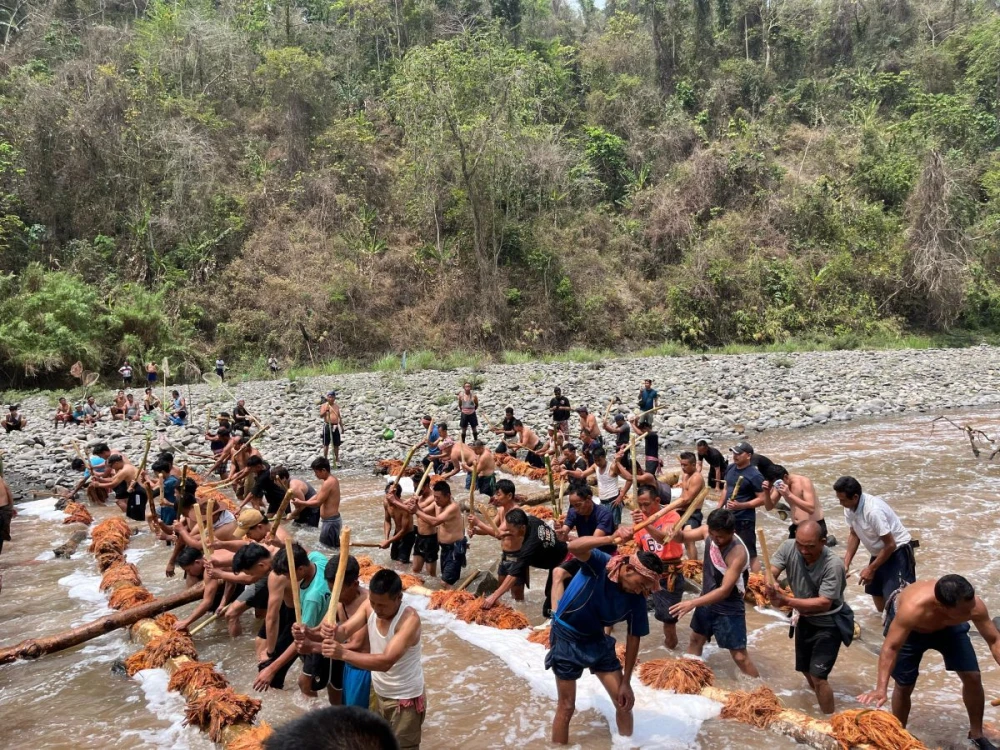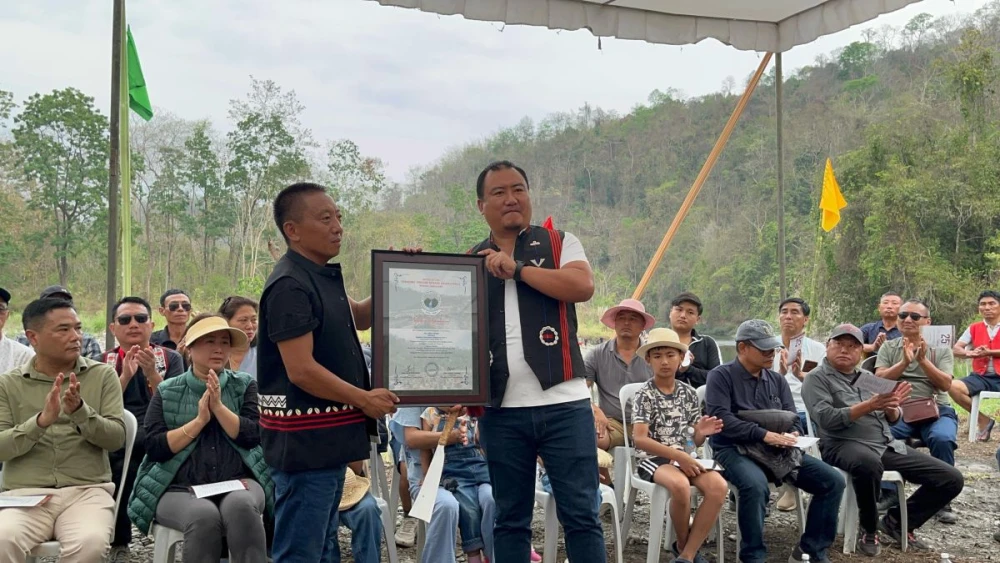A young boy takes part in the community finishing located between Tsungiki and Philimi villages on April 12. (Morung Photo)

Morung Express News
Wokha | April 12
The Tsungiki-Philimi Doyang Union (TPDU) Community marked a momentous occasion with the celebration of its 25th anniversary on April 12. The event was held at Jendong Ezhu/Tsutsuye located between Tsungiki and Philimi villages. It was graced by Abel P Shohe, Secretary of the Nagaland Government Registered Class-I Contractors’ Union (NGRC-I CU), as the special guest.
In his keynote address, Shohe underscored the deep-rooted traditions of the community’s fishing practices, which date back over a century, despite the Union itself being officially constituted in 2000. He highlighted the celebration’s cultural and economic potential, advocating for it to be formalised into a recognised festival with fixed dates and structured programming. Drawing parallels with Nagaland’s renowned Hornbill Festival, he emphasised how such an initiative could promote tourism, cultural preservation, and local revenue generation.

Shohe also encouraged the inclusion of neighbouring villages and tribes in future celebrations to foster unity and intercultural exchange. He stressed the importance of documenting traditional knowledge — including the week-long preparations that involve collecting logs and piscicidal plant roots — to ensure these ancestral practices are preserved for future generations. He further urged the community to adopt stronger organisational structures, enforce regulations, and uphold environmental stewardship to protect the rivers and natural resources. Expressing his appreciation, Shohe praised the community’s unity and encouraged collaboration with the government for wider support and recognition.
TPDU Chairman Hokiye Assumi extended a welcome to attendees at the union’s 25th Jubilee celebration. In his welcome address, Assumi expressed gratitude for the favorable weather, saying, “Today, by God’s grace, the weather is good. To all who have come, I extend my greetings.” He further remarked, “Jubilee is jubilee, no matter what kind — everyone here will be blessed.” He emphasized the importance of unity and gratitude, adding that it was a moment to be thankful for, as everyone had come together to mark the significant milestone.

The event featured a brief history of the Tsungiki and Philimi fishing traditions, shared by former TPDU Chairmen, Vilhozu Wotsa and Tsenyimthung Kikon. A solemn prayer was offered by Pastor Vikashe Kiho of Philimi Baptist Church, followed by a lively and vibrant performance by local talents Thunglamo, Bubu, and David Ngullie.
The programme concluded with a vote of thanks by W Wojanthung, Secretary of TPDU, and a benediction from Dr Nagaho Zhimo, Pastor of Rotomi Baptist Church. Pastor T Mhao Kikon of Tsungiki Baptist Church also offered a prayer prior to the traditional ritual of pounding piscicidal plant roots into the river, a culturally symbolic act signifying unity and shared heritage.
Speaking to the media after the event, Janthungo Kikon, Chairman Tsungiki, extended his gratitude to all attendees and reflected on the community’s journey: “Our forefathers practiced this long before the formation of any union. After TPDU was formed, this tradition was nurtured and strengthened. It is not a commercial activity, it is a means to bring the Semas and Lothas together. In the past, there were tribal altercations, but since the inception of TPDU, we live as brothers.”
K Vikikhe Sema, Akukatuo and Head GB of Philimi, reaffirmed that TPDU has enabled the community to practise traditional fishing in the same way their ancestors did. “This event is more than just fishing, it brings individuals together, helping us bond and reflect. In the coming years, we aspire to make this celebration grander.”

Tsungiki-Philimi’s fishing history
Tsungiki village was established nearly 530 years ago, and since time immemorial, its people have practiced a traditional method of fishing, commonly known today as “Community Fishing” with use of piscicidal plants.
This practice was often associated with changes in leadership. During earlier times, the village head, known as ‘Pvüti,’ played a significant role, and occasionally, the village would invite neighboring communities, such as Philimi and Rotomi, to participate.
In the past, strict protocols were followed in initiating and marking the day of community fishing. Only male members were permitted to take part, which also allowed the village to gather statistics on the male population as they assembled for the event.






